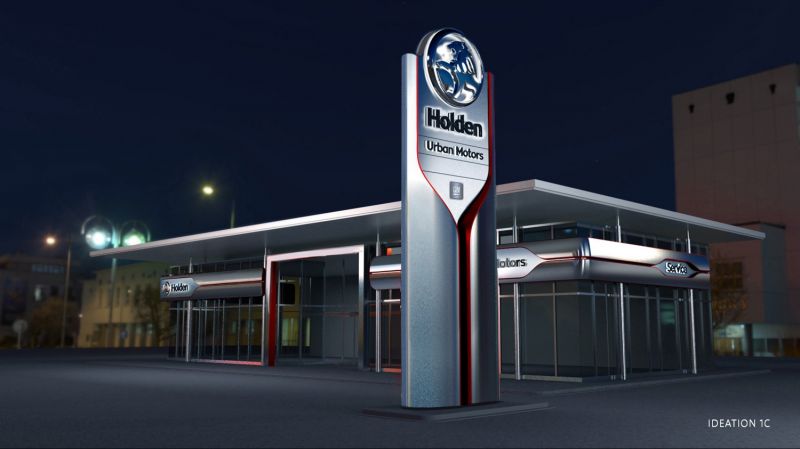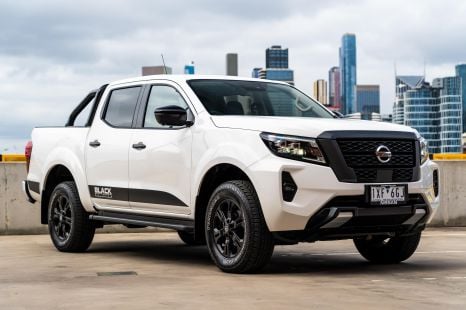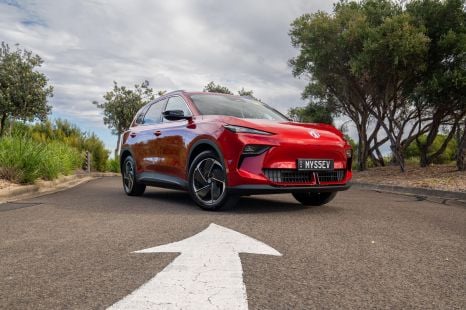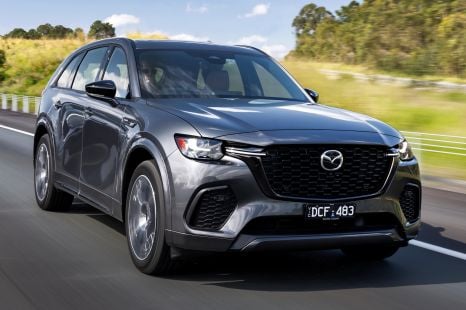

Andrew Maclean
3 Days Ago
The Federal Government says it's protecting small business, but car manufacturers claim over-regulation stifles innovation. Here we try to explain the issue.

The Australian Government says further reforms are needed to address the power imbalance between car companies and their associated, independent franchise dealers or agents.
The position is contested by a car industry that says existing franchise laws are strong, that prioritising one component of the supply chain over others will not benefit consumers, and that over-regulation kills innovation in an industry with customer satisfaction issues.
Minister for Employment Stuart Robert this week launched a discussion paper on whether a standalone franchising code of conduct specifically for the automotive industry, with “more tailored regulation”, was needed to resolve disputes.
Cited evidence it’s required – a position also flagged by a relevant senate inquiry – includes long court battles between dealers and General Motors when the latter killed off the Holden brand.
In retort, the peak body representing car companies in Australia, the Federal Chamber of Automotive Industries (FCAI), said automotive franchising laws “should focus on providing consumer choice, not dealer protection at the expense of all others”.
It comes as more car manufacturers investigate new ways to sell their cars: either through conventional franchise wholesale dealers, through franchised fixed-price agents, or direct-to-consumer in brick-and-mortar or directly online.

The mooted creation of a franchising code of conduct specifically for the automotive industry means car dealers would no longer fall under the existing franchise code as enforced by the ACCC, but rather a new one.
The argument goes car dealers warrant a specific code because: they bear high capital costs, have ongoing relations with buyers as service customers, and a power gap against “multinational” companies with deeper pockets that can wait them out in court if needed.
Establishing a form of mandatory binding arbitration under a new framework could allow an aggrieved dealer to bring a dispute to an independent third party for a determination, and both it and the car brand would be bound by the decision.
This applies particularly on future obligations.
The latest calls for reform build on what was announced in March this year: the government having made existing voluntary agreements between car brands and dealers/agents compulsory, enforced by fines of up to $10 million.
Today’s announcement seeks to build on this issue, with the government convinced more needs to be done to protect dealers.

“The Morrison Government is seeking feedback from family-owned automotive businesses and their employees to understand the extent of other potential issues in the sector and the possible need for further reform to contribute to providing a level playing field,” Minister Robert said.
“… The Morrison Government is delivering reforms to help ensure a fair go for dealers that employ more than 60,000 Australians, including 4000 apprentices, and contribute more than $12 billion to the economy.”
We would point out car companies have regional head offices to oversee local issues, somewhat negating the idea franchised dealers must deal with distant multinationals (unless the brand exits the market, a la Holden).
We’d also point out many car dealers are anything but “family-owned automotive businesses” as laid out by Minister Robert.
For example ASX-listed car dealer group Eagers Automotive Ltd made $267.4 million pre-tax net profit for the first six months of 2021 and has more than 250 dealers in Australia and New Zealand, selling 19 of the top 20 brands.

The Australian Automotive Dealer Association CEO James Voortman called the discussion paper a significant step, saying compulsory binding arbitration was needed and citing the drawn out legal dispute between Holden dealers and GM when the brand left the country.
“The release of this discussion paper marks another significant step in reforming the imbalances that exist between dealers and some manufacturers,” he said.
“We believe this provides an opportunity for our industry to come together and build on the progress that has been made towards a fair and reasonable set of rules that govern relations.
“… The consideration of options for compulsory binding arbitration is such an important element of this process given the experience of Holden dealers in their dispute with General Motors.
“The prospect of a drawn out and costly legal battle resulted in most Holden dealers accepting inadequate compensation packages.
“… Car dealers across Australia are incredibly appreciative of the efforts of the Morrison Government and the work of the Small Business Minister Stuart Robert.
“All of the reforms that have been progressed to date are fair and will establish an appropriate standard already being set by some of Australia’s most reasonable manufacturers.”

Federal Chamber of Automotive Industries Chief Executive Tony Weber said the paper failed to consider the consumer, and put the interests of one component of the supply chain “over Australian families”.
“The ink is not yet dry on far-reaching industry regulations introduced last month. Their impact needs to be seen before more regulations are contemplated,” Mr Weber contended.
“The Government describes its franchising reforms as having already delivered ‘big wins’ to dealers, but where there’s a winner there’s also a loser – and in this case it’s the Australian consumer.
“Automotive franchising is a consumer issue, not an industry protection issue. It should focus on providing consumer choice not dealer protection at the expense of all others. Regulation should encourage innovation and flexibility for business, not leave it anchored in the last century.”
Mr Weber said Australia “already has extensive competition and franchising regulations” and any further regulation would stifle the industry’s capacity to innovate.
“Over-regulation will not protect the industry but what will is a choice of sales models, better service and competitive pricing. The FCAI looks forward to working with industry stakeholders and the Federal Government on this important issue.”


Andrew Maclean
3 Days Ago


Josh Nevett
7.3
3 Days Ago


James Wong
2 Days Ago


Andrew Maclean
2 Days Ago


Josh Nevett
8
2 Days Ago


Jack Quick
7.9
21 Hours Ago